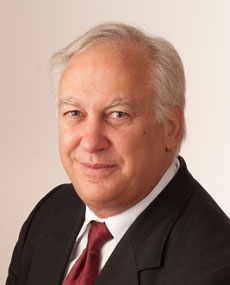New York City officials are sick and tired of taking complaints about missed cable appointments and other service problems on its 311 city help line. Nearly 1,200 calls about cable have been made so far this year alone, with fed up New Yorkers annoyed they took a day off work to wait for a cable technician that never arrived, or one who never solved the problem they were called to fix.
Now city officials are forcing the area’s two incumbent cable operators — Time Warner Cable and Cablevision, to pay for their mistakes.
As part of franchise renewal negotiations, both cable companies have agreed to credit subscribers the full amount of that month’s cable bill if the cable guy arrives late, or not at all.
The penalty decreases to $25 after 2012, when Verizon FiOS service is expected to blanket most of the city.
But consumer reforms extend beyond financial penalties for missed appointments.
Customers will soon be able to request notification by e-mail, phone or text message when a technician is heading to their home. And calls to either cable company should be answered by a real person no more than 30 seconds after dialing.
 Many of these reforms are already a part of the franchise agreement New York City’s Office of Information Technology & Telecommunications worked out with Verizon, allowing the phone company to provide cable television in the city.
Many of these reforms are already a part of the franchise agreement New York City’s Office of Information Technology & Telecommunications worked out with Verizon, allowing the phone company to provide cable television in the city.
Time Warner Cable spokesman Alex Dudley didn’t miss the opportunity to turn the challenging new requirements into an opportunity. He told area reporters Time Warner welcomes the new customer service standards and appreciates the opportunity to compete for customers in the metropolitan New York area.
As Robert Porto, 38, a Time Warner Cable customer in Boerum Hill, Brooklyn, told the New York Times, the new contract will be “the ultimate revenge for the little guy.”
Importantly, none of these consumer-focused reforms would have been possible had New York adopted the kind of “reform” companies like AT&T and Verizon have advocated in other states — statewide video franchising.
New York’s legislature has rejected previous attempts to eliminate local cable and video franchise agreements, citing the loss of control by local municipalities to deal with provider issues that would sail over the heads of a statewide committee in Albany. New York has been generally hostile to Big Telecom’s deregulation agenda. One state assemblyman, Richard Brodsky (D-Westchester), even introduced a bill requiring phone companies like Verizon to split the proceeds of asset sales with ratepayers.
Other provisions of the franchise agreements include:
- The right to terminate franchise agreements with Time Warner Cable and Cablevision Systems if broadband-delivered video significantly erodes cable TV revenue over the next 10 years;
- Time Warner Cable and Cablevision are required to invest about $10 million to install Wi-Fi access in 32 public parks in all five boroughs, to be operated and maintained by the companies until 2020;
- At least five new Public, Educational and Government (PEG) community access channels will be added, up from the four that currently exist, by 2012. At least one must be in HD. The operators also agree to pay a combined total of more than $9 million, payable in annual installments, plus an additional $2 million of “in-kind” services to pay for equipment and operation expenses;
- More than $20 million to help finance the upgrade of CityNet, the city government-dedicated network;
- Time Warner Cable will establish four community broadband access centers per year (40 total), in collaboration with nonprofits, over life of franchise;
- Time Warner Cable will install 20 miles of fiber per year in underserved commercial/industrial areas over franchise term; and will build-out Brooklyn Navy Yard. Cablevision already serves the commercial blocks in its service areas. Companies will commit to expend $1.8 million per year to bring fiber to commercial buildings of city’s choice.
[flv width=”640″ height=”380″]http://www.phillipdampier.com/video/WABC New York New Yorkers could get money if cable guy stands them up 9-15-10.mp4[/flv]
WABC-TV covers the introduction of pro-consumer cable service reforms for metropolitan New York residents. (2 minutes)


 Subscribe
Subscribe

